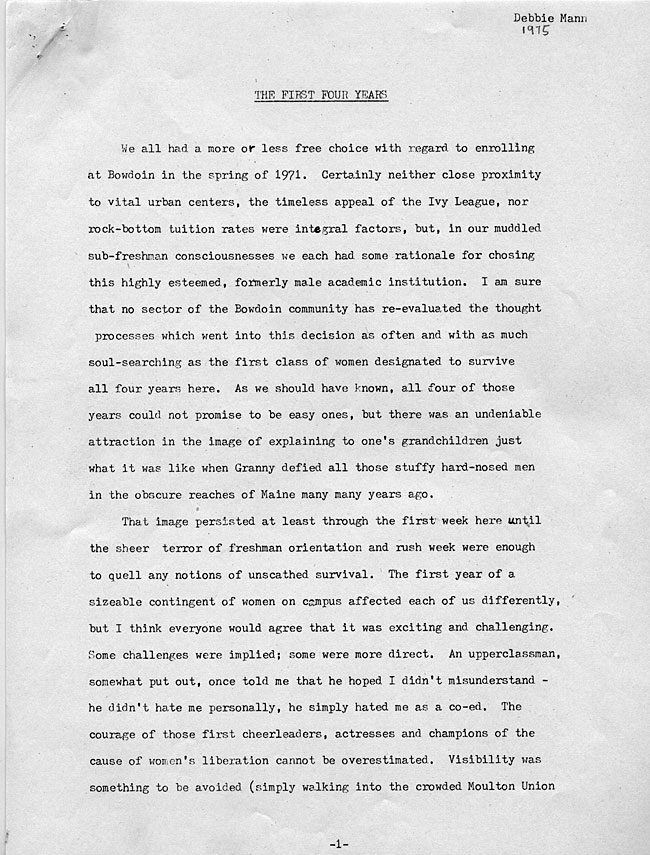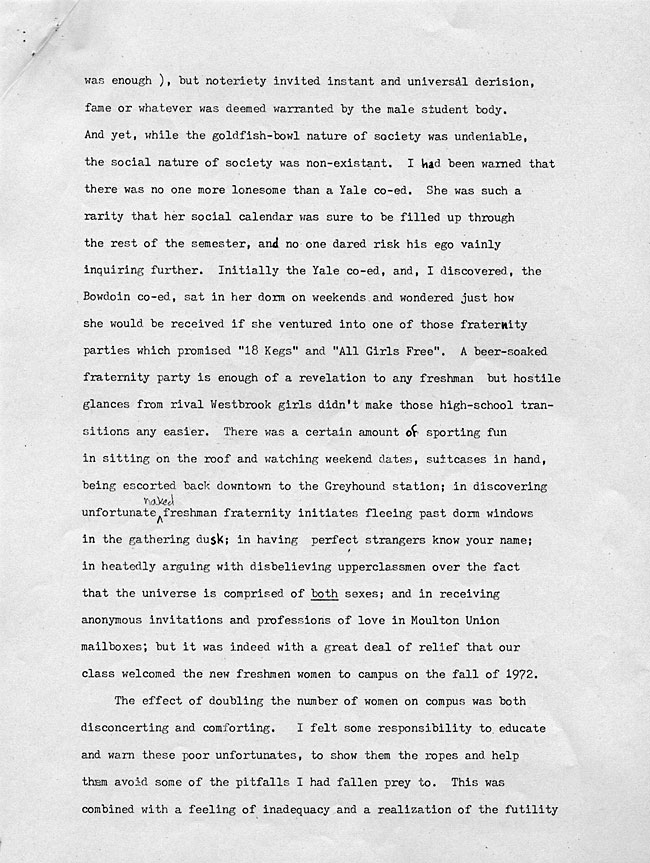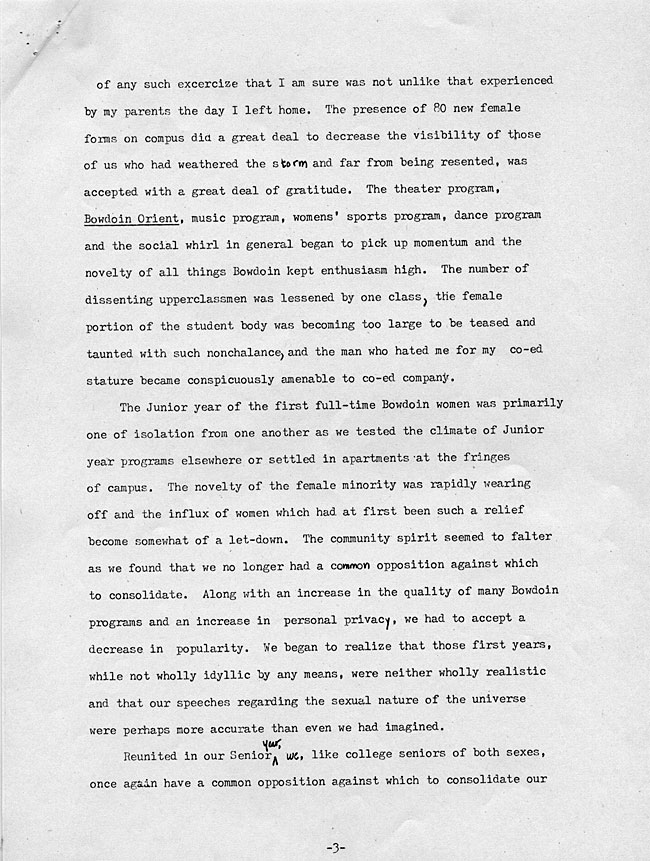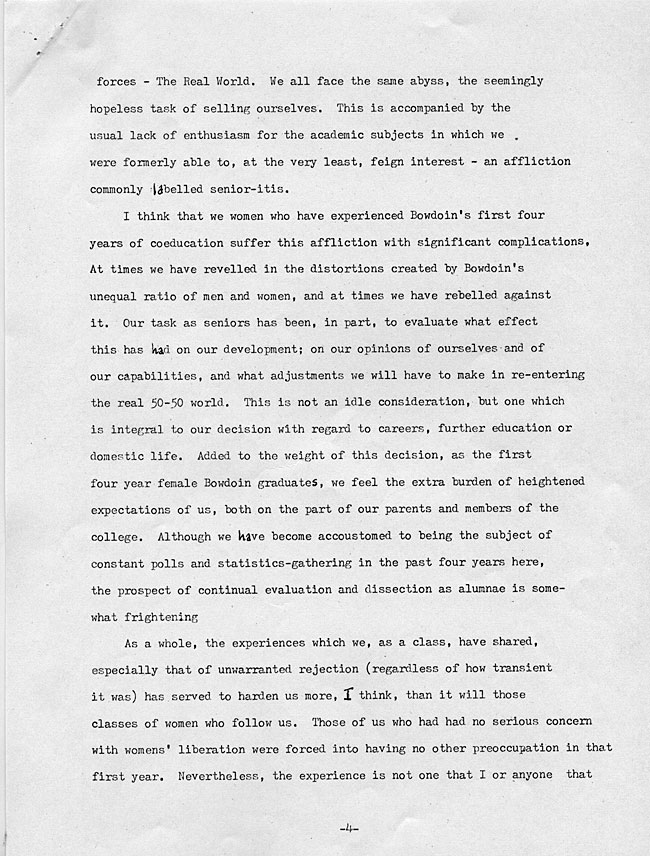Deborah Mann’s 1975 commencement address offers a unique insight into the day-to-day experience of a Bowdoin woman in the first full graduating class (Document AK, 30). Mann describes some of the more flagrant misogyny remaining on the formerly all-male campus as well as the remarkable tenacity and courage with which this prejudice was met by these early Bowdoin women.
Mann includes an intriguing anecdote that demonstrates some of this discrimination: “An upperclassman, somewhat put out, once told me that he hoped I didn’t misunderstand – he didn’t hate me personally, he simply hated me as a co-ed.” As disturbing as this comment may seem, Mann’s real message is that, “The courage of those first cheerleaders, actresses and champions of the cause of women’s liberation cannot be overestimated.” She laments the “fish bowl” nature of the still male-controlled community at Bowdoin, claiming that “Visibility was something to be avoided […] but notoriety invited instant and universal derision, fame or whatever was deemed warranted by the male student body.” Mann also discusses the tremendous party and alcohol scene – so often cited as a partial impetus behind coeducation in the first place – plus the tenuous dynamic between Bowdoin women and women attending nearby Westbrook College who arrived on weekends to participate in social events, only to leave again each Sunday.
Gratefully, Mann eventually writes, “[…] the female portion of the student body was becoming too large to be teased and taunted with such nonchalance.” With this shift came a lessening of some female solidarity, as the common male enemy, as it were, was no longer behaving quite so terribly. Interestingly, many of the men with whom we have spoken for this project have indicated that while coeducation was important, many other issues eclipsed coeducation as the issue of the day, such as social unrest, the Vietnam war, and the growing drug culture. Mann, however, puts it differently: “Those of us who had had no serious concern with women’s liberation were forced into having no other preoccupation in that first year.”




